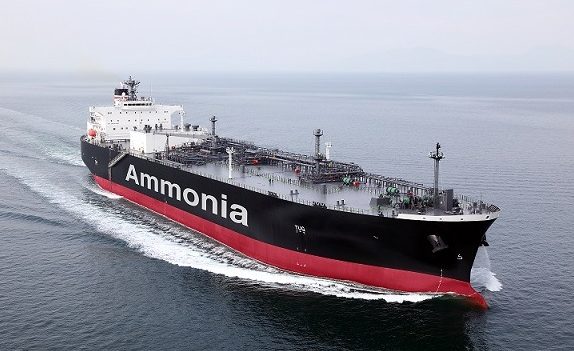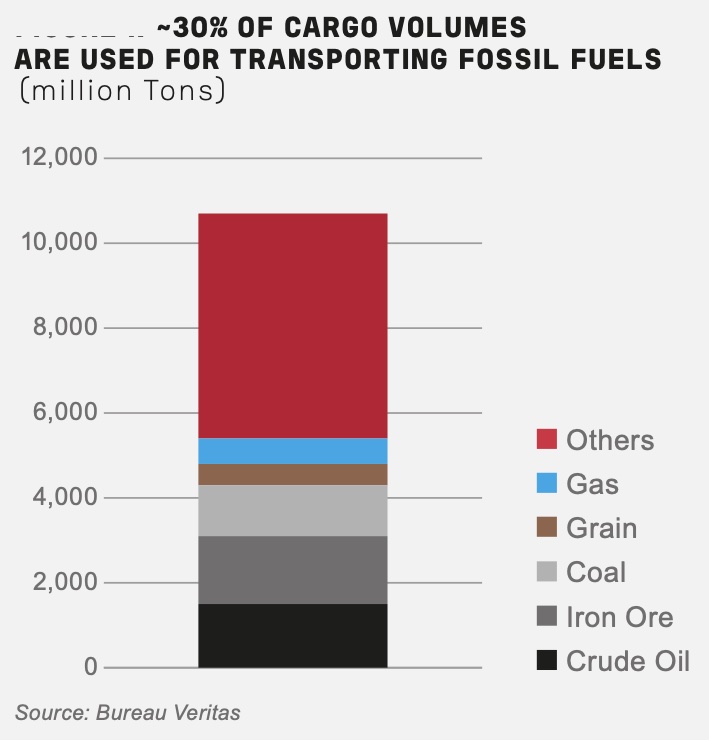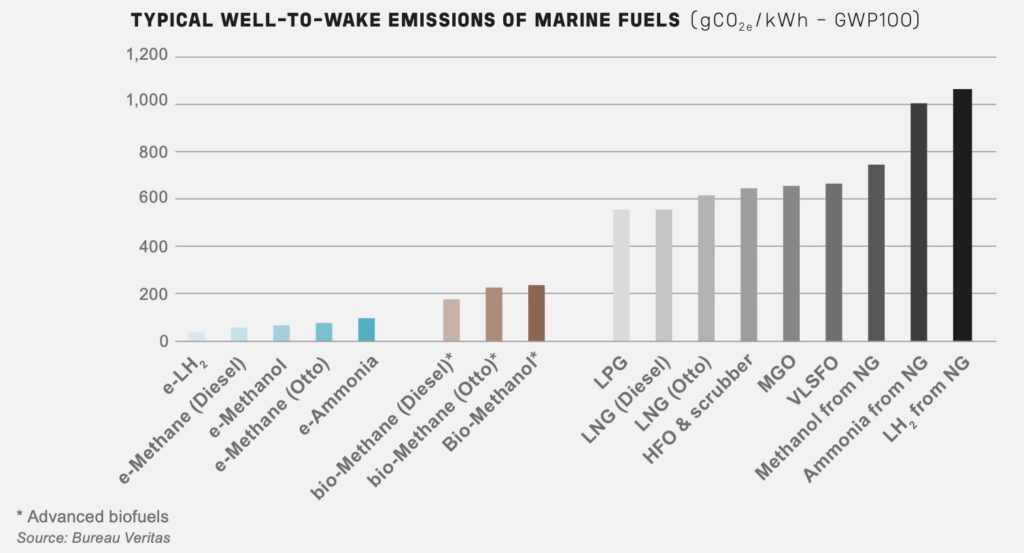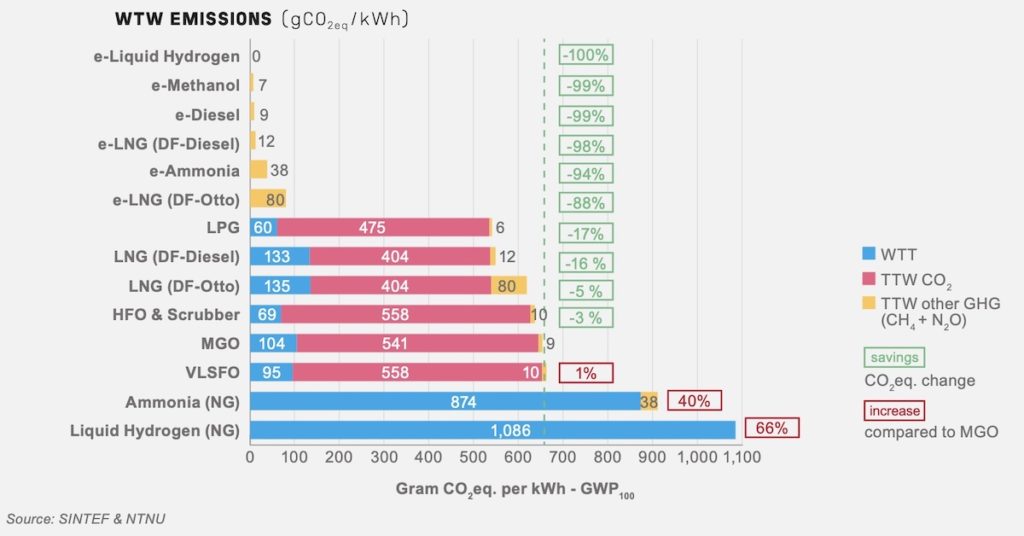Bureau Veritas issues detailed well-to-wake future fuels study

Bureau Veritas (BV) has launched a detailed outlook on future maritime fuels in a new 85-page white paper, which calls for a well-to-wake (WtW) approach to assessing the climate impact and sustainability of alternative fuels.
This is one of the key conclusions of the white paper, which evaluates alternative fuels such as methanol, LNG, biofuels, hydrogen and ammonia, outlining their respective characteristics, advantages, challenges, availability, safety, and greenhouse gas (GHG) emissions, and features very clear, detailed charts on the emissions potential from each of today’s frontrunners in the future fuels race. The study also shows how shipping’s cargo mix will change once the world weens itself off fossil fuels.
A well-to-wake approach accounts for all GHG emissions released from the extraction or production phase, the distribution of the fuel, through to the final use onboard vessels, as opposed to just the emissions resulting from combustion onboard.

Taking the WtW approach is important as legislators will increasingly be looking at energy use through this lens.
The upcoming FuelEU Maritime in Europe, for instance, breaks boundaries by considering GHG emissions on a WtW basis.
Paul Delouche, strategy director at BV and lead author of the report, said: “Assessing alternative fuel options must be done from a well-to-wake basis to achieve true decarbonisation in the shipping industry. Only through a complete lifecycle analysis can the environmental impact of fuels be properly evaluated.”

“Changing fuels will have a major impact on the maritime business worldwide. All projections show that alternative fuels will have a much higher cost than the fuel oil used in the past decades. This will create a considerable change in an industry which plays an indispensable role in the global economy. It could also constitute a paradigm shift in a fiercely competitive global industry that has historically strived to keep costs low,” the report states.
Splash readers can access the white paper in its entirety by clicking here.

